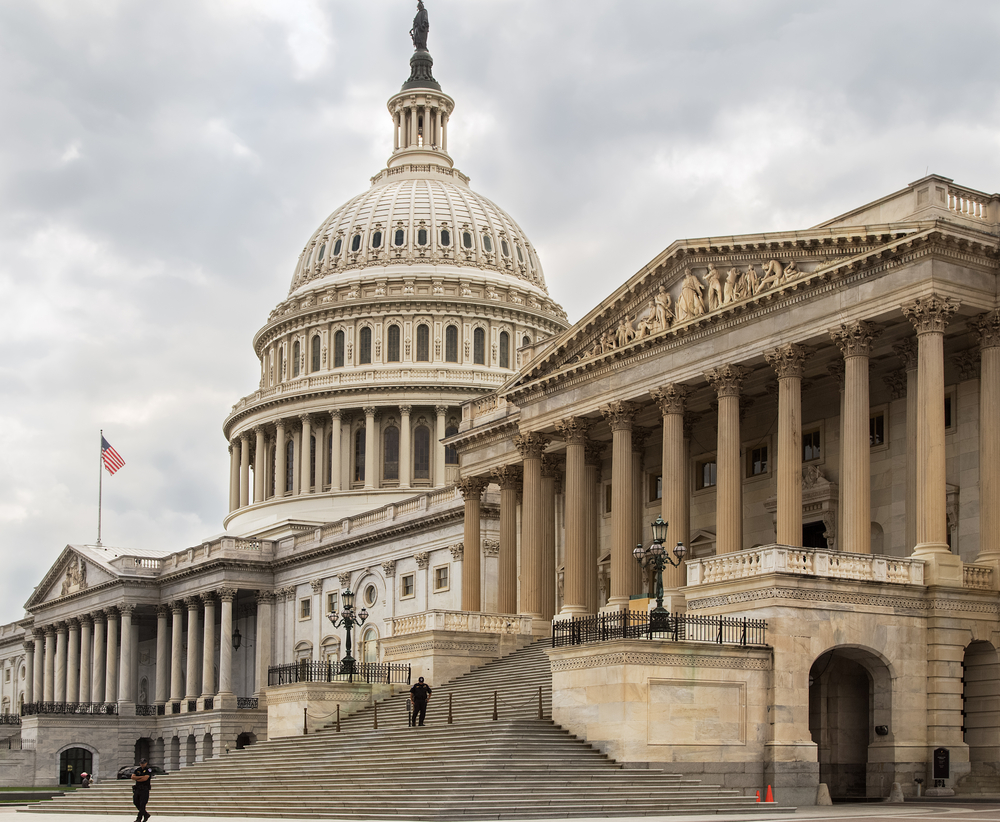May 17, 2022 – Considering that the Food and Drug Administration (FDA) receives nearly half of its funding from medical product user fees, the timely reauthorization of user fees before the current iteration expires Sept. 30 is paramount to ensuring smooth product review operations. But this “must-pass” legislation opens the door to additional priorities and provisions touted by lawmakers.
Based on last week’s House Energy and Commerce Committee’s markup of the user fee legislation, plus reports on the probable contours of the Senate Health, Education, Labor, and Pensions (HELP) Committee’s version, there are likely to be several innovations in the final legislation.
The E&C Committee’s markup (Titles 1-IV) reauthorizes user fees for prescription drugs, medical devices, generic drugs and biosimilars, and also includes new provisions covering clinical trial diversity (Title V), generic drug competition (Title VI), improvements to research, development and the supply chain (Title VII) and transparency (Title VIII), according to POLITICO AgencyIQ’s analysis of the legislation made available by the Alliance for a Stronger FDA.
Separately, STAT reports that the Senate HELP Committee draft may include measures to tighten FDA regulation of dietary supplements, cosmetic products, and laboratory tests. Ultimately, some compromise would need to be reached between the House and Senate versions to move the user fee authorization forward.
The current E&C Committee markup includes the following specifics:
- Places an emphasis on diversity in clinical trials, including setting a “diversity action plan” (Title V)
- Asks for the Department of Health and Human Services to consider if the FDA needs more authority to mandate post-approval studies (Title V)
- Encourages the development of drugs for rare diseases (adopting language similar to the Helping Experts Accelerate Rare Treatments (HEART) Act (Title VII)
- Encourages the development of drugs for fungal infections (adopting language similar to the Finding Orphan-disease Remedies With Antifungal Research and Development (FORWARD) Act (Title VII)
- Provides incentives for antimicrobial development (adopting language similar to the Generating Antibiotic Incentives Now Through Opening Opportunities to Leverage Science Act (GAIN TOOLS Act) (Title VII)
- Calls for inspections of domestic and foreign manufacturing facilities (Title VII)
- Seeks to identify key drug shortages more quickly (Title VII)
- Targets cybersecurity vulnerabilities (Title VIII)
- Focuses on the integrity of the accelerated approval process (Title VIII)
Section 804, according to AgencyIQ, is a revamped version of E&C Chairman Frank Pallone’s (D-N.J.) Accelerated Approval Integrity Act. “In March, E&C Chairman Pallone put forth a new bill to make major changes to the Accelerated Approval process,” AgencyIQ states. Although the provision in the markup is similar to that bill, “the text has been updated compared to the version first previewed by Pallone – most significantly, the version in the user fee package does not include the provision that would have accelerated approvals automatically expire after a set amount of time if benefit were not confirmed,” it notes.
The Senate HELP Committee draft of the bill may fold in several measures advocated by leading committee members, including:
- Ideas floated in a discussion draft first released by the committee in 2018, and in a proposal by Sen. Susan Collins (R-Maine), to require cosmetic manufacturers to register with the FDA, require the FDA to study the safety of certain cosmetic ingredients, and give the FDA authority to shut down the manufacturing of cosmetic products that are suspected of causing serious harm to consumers.
- Increased authority over dietary supplements, perhaps building upon a proposal by Sens. Dick Durbin (D-Ill.) and Mike Braun (R-Ind.) to have supplement makers register their products with the FDA.
- The Verifying Accurate Leading-edge IVCT Development (VALID) Act, sponsored by committee ranking member Sen. Richard Burr (R-N.C.), to give broader authority for the FDA to regulate “laboratory-developed tests,” such as assays used to measure cholesterol levels.
“The question remains whether all of these add-ons will get into the final bill,” said Coalition for Healthcare Communication Executive Director Jon Bigelow. “Some may be held back and become part of the Cures 2.0 bill,” sponsored by Reps. Diana DeGette (D-Colo.) and Fred Upton (R-Mich.), which “is also slated to be passed this calendar year, but without the Sept. 30 deadline,” according to Bigelow.
One way to satisfy the time constraints is to coalesce around areas of consensus, because disagreements will delay the bill’s progress. One issue dividing the E&C Committee is how to regulate medical device third-party servicers, according to POLITICO, which reported that E&C Committee Chair Pallone and E&C Health Subcommittee Chair Anna Eshoo (D-Calif.) disagreed on this matter and at least one other related to the regulation of contrast agents, radioactive drugs and over-the-counter monograph drugs.




